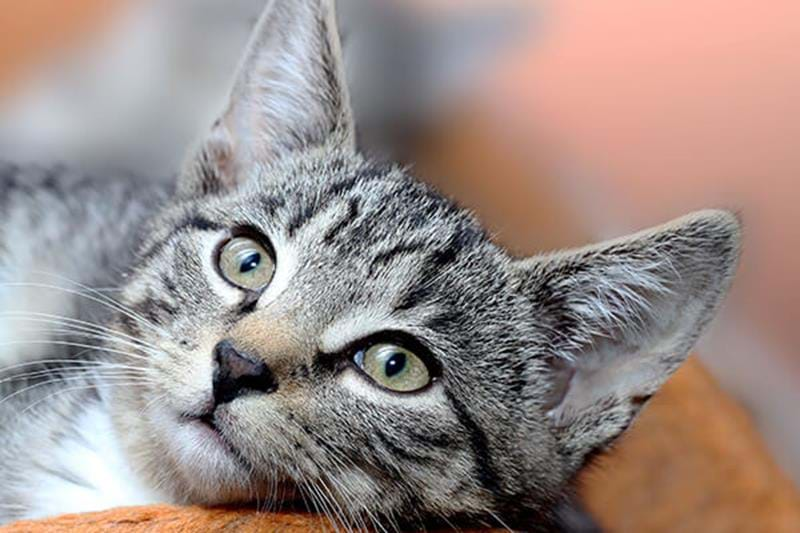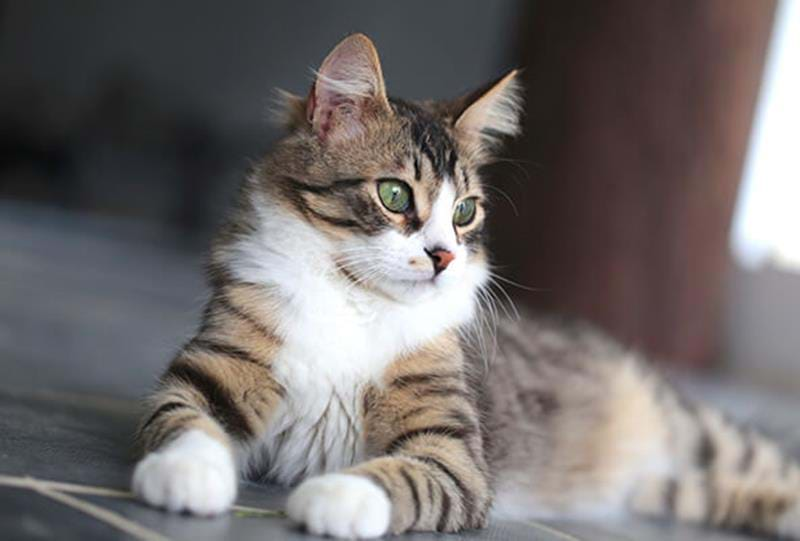Vaccinating your cat is important for both your cat and other cats. By vaccinating your cat, you reduce the risk of common diseases such as FPLV and feline colds, also known as feline flu, spreading.
CAT VACCINATION STOPS DISEASES
FPLV is a common and very serious gastrointestinal disease caused by a parvovirus. It’s highly contagious and has a high mortality rate, so it’s really
important to vaccinate your cat. The virus is most often spread through contact with the faeces of infected cats, and is therefore very common.
Cat flu is like a human cold and can cause, among other things, cough, fever, pain in the muscles and joints, sores in the mouth and breathing problems. This disease is even more common than FPLV and is most often caused by the herpes virus or calicivirus. This is also a contagious disease, and vaccination of your cat against it is important. The spread of infection takes place primarily through the nose, eyes and saliva. In the right conditions, the virus can survive for several weeks, so cats don’t even have to meet each other to infect others or be infected.
WHEN SHOULD KITTENS BE VACCINATED?
Vaccinate your kitten for the first time at seven to eight weeks of age and again after week 12. Before you bring the kitten home, it is essential you check with the breeder that the cat has had their vaccinations and which disease have been covered.Don’t take this for granted, and if you’re unsure, request a vaccination certificate.
HOW OFTEN SHOULD YOU VACCINATE YOUR CAT?
How often your cat should then be vaccinated depends on the type of vaccine the veterinary clinic uses, so always consult your vet. Some vaccine manufacturers recommend an annual vaccination while others protect for up to three years.
Side effects may occur after one to two days, and usually take the form of swelling at the injection site, or sometimes even fever. This is common and nothing to worry about.
CAT VACCINATION WHEN TRAVELLING ABROAD
Give your cat extra vaccinations if you’re taking them abroad. The basic vaccination in Sweden protects against FPLV and feline colds/ feline flu. For some countries outside the EU, however, your cat is required to take a blood sample at least 120 days after the initial vaccination to ensure adequate protection. If you’re traveling within the EU, it’s required that the cat has a valid vaccination and is thoroughly vaccinated against rabies.
Contact your veterinarian to find out which vaccinations are required for your destination and make sure to vaccinate well before the departure.
EVEN INDOOR CATS NEED TO BE VACCINATED
It’s important that both outdoor cats and indoor cats are vaccinated. Even if your cat rarely or never goes outside, there’s still a risk that
it will be infected with common diseases. An unprotected indoor cat can become ill by you bringing home contaminated particles on your shoes or clothes, for example via faeces.







